Dear HLT Readers,
Welcome to the February issue of our magazine. First, I would like to share news about the Bonnie Tsai Scholarship. We had 67 contributions, of which 31 came from pre-service teachers studying at University College Leuven Limburg in Belgium. The jury - Mario Rinvolucri, Paul Davis and Hania Kryszewska - had the pleasure to read all the contributions. It was hard to reach a verdict; we took into consideration both, the essay on creativity and the lesson plan. Finally, the scholarship has been awarded to Natalia Mukhina from Higher School of Economics in Moscow, Russia. Congratulations. So we will welcome Natalia at Pilgrims this summer to take part in a two week Pilgrims course of her choice.
The winning contribution and a number of other contributions will be published in HLT in the next issues of the magazine. I will be in touch with the authors.
I must say it is wonderful to know that there are so many teachers to whom creativity in the language classroom is important.
It is the deadline to apply for Erasmus+ grants soon. In Pilgrims News: An Invitation to Create the Future you Deserve in 2019... you can find information about our Pilgrims courses in 2018 and also in 2019. Make sure you tap into this unique opportunity for professional and personal development.
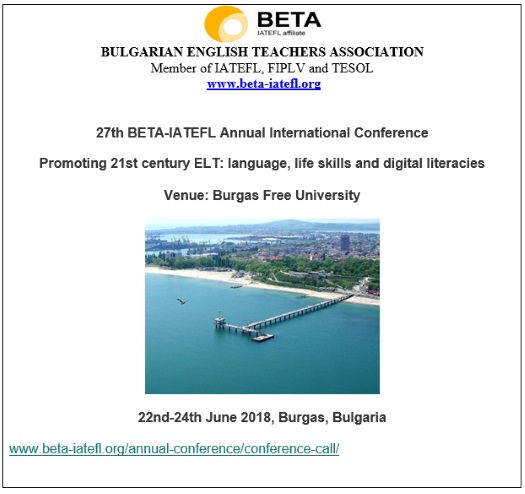
If you are planning to attend the IATEFL Brighton conference, do look up the Pilgrims team at the Pilgrims stand.
And now without further ado I would like to hand over to Maria-Araxi Sachpazian, the host editor of this issue of the magazine. A big thank all the Greek colleagues for their hard work and dedication. Enjoy the Greek issue.
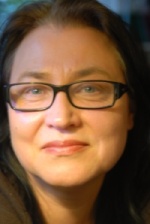
Happy reading
Hania Kryszewska
HLT Editor
E-mail: hania.kryszewska@pilgrims.co.uk
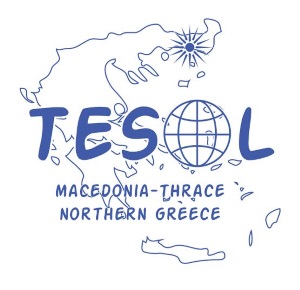
Dear HLT Readers,
It is a great honour for TESOL Macedonia-Thrace, Northern Greece to be hosting the February 2018 issue of the most celebrated Online ELT magazine in Europe. We are particularly happy that the hosting of this issue coincides with the 25th birthday of our association. In a few short days, we will be holding in Thessaloniki Greece our 25th Jubilee International Conference entitled ‘’Overcoming Obstacles, Shaping the future’’

Unfortunately, we cannot accept papers anymore but if you are interested in attending our conference, please find our Members’ Registration Form at https://goo.gl/forms/OYzvGTqd0Q3TH5K92
It seems that these days teachers all around the world are trying to do this very thing: overcome obstacles in order to shape a better future for their students. Obstacles come in all shapes and sizes: from what policy makers perceive education to be, to what practising teachers experience, from the lack of resources, to having too many resources and too little time, from what our learners think constitutes language learning to what language acquisition really is. The greatest trick of the trade seems to be our ability to prioritise needs and to adjust our teaching. In the articles hosted in this issue, there is great emphasis on how to make students ‘’feel’’ our teaching, how to adapt it to their needs so as to maximise the effects of learning. Manolis Kontovas and Maria-Araxi Sachpazian write about Teaching Beyond the Classroom: Teachers Influencing Students’ Attitudes to Learning, The Secretary General of our association and our editor-in-chief (both for our own E-Newsletter, ELTeaser) and for this issue, Maria Theologidou has written an article entitled The Power of Student-centered Environments: Steps Towards Creating Student-driven Learning Spaces, while Eftychis Kantarakis gives us some useful insight into how to ‘’listen’’ to the learners while teaching in his article Can you Feel It? Should we Help Students Express How They Feel? The Digital Side of Feelings. Looking at technology, Jake Delatolas-Saveris outlines the use and the benefits of Interactive Whiteboards in his article Interactive Whiteboards in ELT. Staying in the area of technology, Dimitris Primalis shows us how we can use technology and art in his article Far and Beyond the Classroom Routine: Reimagining Famous Paintings. Despina Sarantidou’s article Implementation of Collaborative Group Projects with Students of Different Ages and Language Levels: A Suggestion paves the way for a lot of research in how learners can teach each other. From the field of psychology and its application in teaching Olga Christodoulou writes on The Influence of the Individual Learning Styles in Second Language Learning: How Inclusive Can Teaching Strategies Be?, while Dr. Danae Tsapikidou takes us into the world of stories and their use in language teaching in her article Jason and the Golden Fleece: Can Stories Trigger Language Growth. In the Poetry section, TESOL MTH board member Vassiliki Mandalou shows us how to use poems in the teaching of adults and autistic children in her article “Poetry in Motion as a Key to Learning Success”: Plus a Lesson Plan.
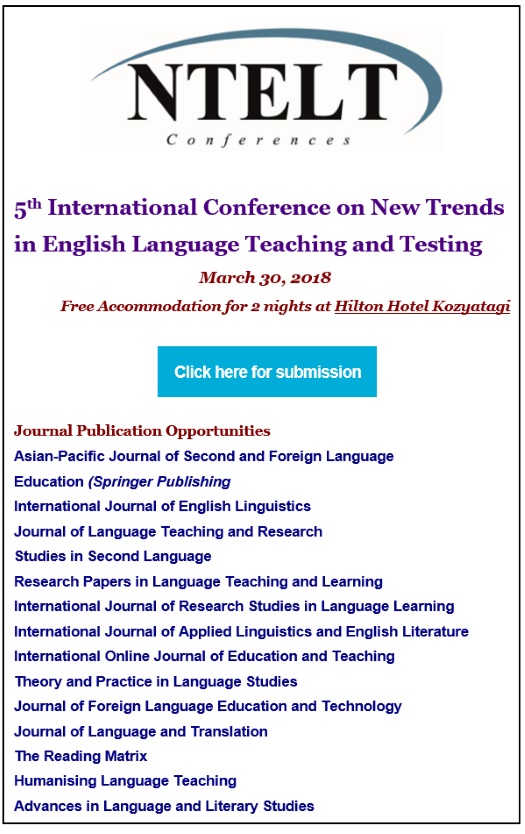
In Greece, learning English is a serious issue and families consider it top priority because they are fully aware that without English their children’s educational and professional future is going to be fairly limited. Despite the seriousness of the matter there are many problems that plague language teaching. One of these problems touched so well in Theodora Papapanagiotou’s article entitled We take Exams Seriously is the obsession of families for fast certificates, which may reflect little knowledge or skill in the language ‘’learnt’’. A totally different approach to teaching and learning to this narrow-minded view that learning languages is all about passing exams, is that which we can see in the lesson outlines section. Three esteemed colleagues have contributed practical ideas to apply in class. Aphrodite Gkiouris writes about ABC Fun Games, Angeliki Voreopoulou writes about The Story Box: Dramatised Storytelling Activities for Young Learners, while TESOL MTh Board Member Efi Tzouri suggests a lesson outline entitled Guess, Whose is This.
In the major articles section we were fortunate enough to have contributions from experienced colleagues who work in tertiary level and engage in SLA research. Ifigeneia Dosi and Selini Kamoura’s article is entitled Elicited Imitation Tasks as Measurement of Language and Working Memory: Evidence from L2 learners of English. Vicky Papageorgiou writes on Reconstructing the Social and Political Theory of Education: Foucault and the School Management Practices of Knowledge. From Surveillance Policy to Empowerment Policy of the Self. Foteini Malkogeorgou and Vasiliki Papadopoulou give us an insight into some action research in their article entitled Multimodal Processing and Cognitive Load: Exploring EFL Learners’ Perceptions on the Effect of Bimodal Subtitling on Listening Comprehension. Dr. Christopher Less discusses Integrating Language Variation into EFL Teaching in Greece: Proposals for Secondary Education, while TESOL MTh Membership Secretary Dr Kyriaki Koukouraki shows us how A Task-based Approach to EAP would work in practice. Isaak Papadopoulos looks into the learning environment in his article Let’s Write and Learn: Enhancing Foreign Language Skills Within a Multimodal and Motivating Learning Environment. Finally, Dr Luke Prodromou uncovers the secrets of effective teaching in his article Ten Secrets of Effective Language Teaching.
In our corpora idea, Dr Paschalia Patsala discusses lexicography in her article "Reviving Lexicography through Text Corpora". In the Student Voices section, I report on my findings from a structured discussion with my C2 students around the issue of teachers and education -Teachers and schools through the eyes of students. In the Publications section, Margarita Kosior looks at a volume edited by Kieran Donaghy and Daniel Xerri entitled The Image in English Language Teaching.
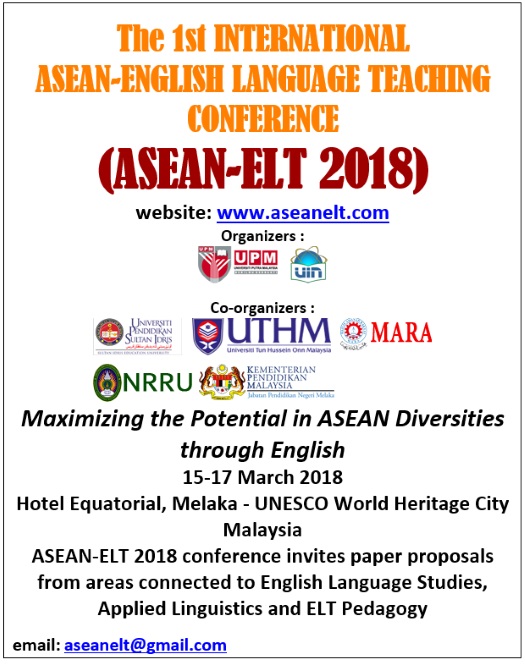
We do hope you find these articles inspiring and relevant to your teaching. On behalf of the board of TESOL Macedonia-Thrace, Northern Greece I would like to thank Hanna Kryszewska for her trust in us and the opportunity she gave us, also for her generosity, her patience and her guidance. My heartfelt thanks go to all our writers who were so professional and so committed and last but not least to my partner in crime, Maria Theologidou for sharing the work that it took for this hosted issue to come out.
We would love to welcome all of you to Thessaloniki in one of our conferences or why not in one of our future webinars.
Best wishes for a great reading experience,
Maria-Araxi Sachpazian
Chairperson
TESOL Macedonia-Thrace, Northern Greece




|